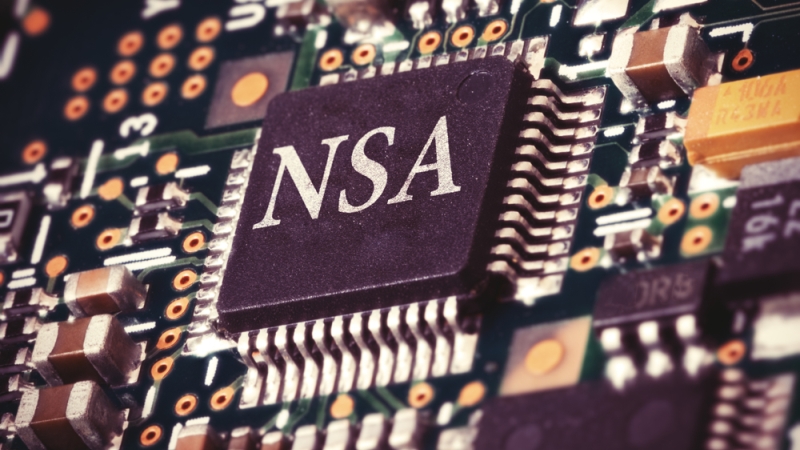
The National Security Agency announced last week that it will stop collecting Americans’ emails about foreign targets. However, this is a small amount of data compared to the rest of the information that the NSA collects.
“This is a more focused policy by the NSA. It aims to restrict upstream collection to only those communications that directly involve a foreign intelligence target,” said Margaret Hu, an associate professor of law at Washington and Lee University School of Law, in an interview with MeriTalk. “Although it is an important first step, in order to make this type of restriction permanent, it can’t just be a Federal agency’s policy. The NSA could change its mind at any time in the future and go back to collecting Americans’ emails about foreign targets.”
Sen. Ron Wyden, D-Ore., said that in order to enforce this policy in the long term, he plans to write legislation that requires the NSA to continue the restriction.
“For years, I’ve repeatedly raised concerns that this amounted to an end run around the Fourth Amendment,” Wyden said. “This transparency should be commended. To permanently protect Americans’ rights, I intend to introduce legislation banning this kind of collection in the future.”

Wyden asked how many Americans have their phone calls, emails and other communications swept up under section 702 of the Foreign Intelligence Surveillance Act, which is intended to target people overseas. Wyden asked for this number in 2011, renewed his request in 2012, and asked the executive branch to reveal in 2014 that the NSA, CIA, and FBI search for Americans’ communications without obtaining a warrant, according to a statement from Wyden.
“Congress needs to pass legislation banning the practice of collecting Americans’ emails simply because an American may mention a foreign target,” said Hu. “Or the Supreme Court needs to determine that the warrantless collection of Americans’ emails through the NSA’s ‘about’ collection practice is unconstitutional under the Fourth Amendment or another constitutional provision, or would need to conclude that it is unlawful under Federal law, to make this a permanent restriction.”
According to a Privacy and Civil Liberties Oversight Board report, 91 percent of the Internet communications that the NSA picks up annually are from another program, PRISM.
The report said that completely domestic communications could be acquired as much as 0.197 percent of the time. The total amount of data that the NSA collects indicates that this small percentage is actually a fairly large amount of data, according to Hu. The Foreign Intelligence Surveillance Court estimated that this type of data collection could result in the government obtaining tens of thousands of documents per year.
Other privacy experts said that the NSA can do more to protect the rights of American citizens.
“This development underscores the need for Congress to significantly reform Section 702 of FISA, which will continue to allow warrantless surveillance of Americans,” said Neema Singh Guliani, American Civil Liberties Union legislative counsel. “While the NSA’s policy change will curb some of the most egregious abuses under the statute, it is at best a partial fix. Congress should take steps to ensure such practices are never resurrected and end policies that permit broad, warrantless surveillance under section 702, which is up for reauthorization at the end of the year.”
The NSA’s decision occurred during a review of its surveillance practices.
“While the Foreign Intelligence Surveillance Court (FISC) was considering the government’s annual application to renew the Section 702 certifications, NSA reported several earlier, inadvertent compliance incidents related to queries involving U.S. person information in 702 ‘upstream’ internet collection,” the NSA said in a statement. “Although the incidents were not willful, NSA was required to, and did, report them to both Congress and the FISC.”
The NSA reviewed its surveillance program and decided to stop collecting U.S. citizen’s emails about foreign targets to avoid inadvertently collecting information about people who don’t communicate directly with a foreign target. The NSA said that it will delete the “vast majority” of Internet communications by U.S. citizens that it has already collected as soon as possible.
“The National Security Agency works tirelessly around the world to help keep the nation safe,” the statement said. “We have a solemn responsibility and commitment to do this work exactly right. When incidents occur, we immediately report them to oversight bodies and develop appropriate solutions.”
